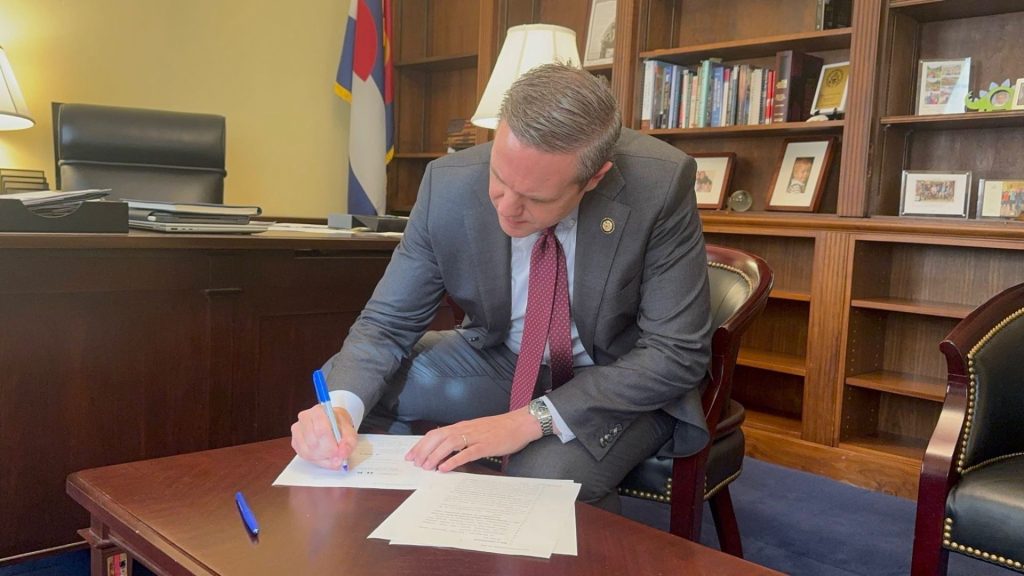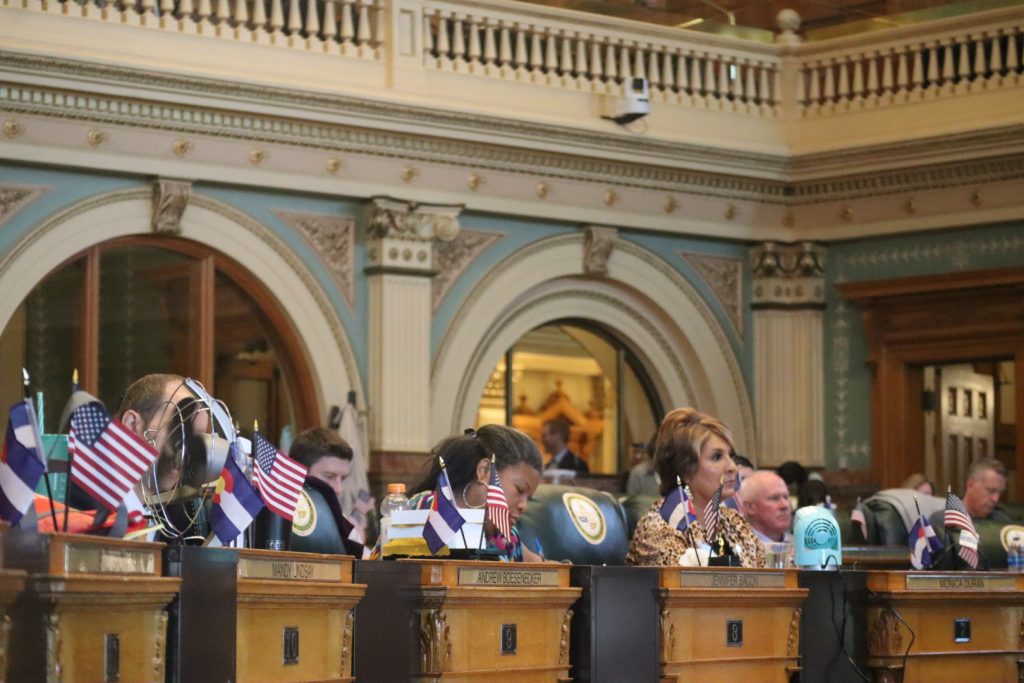Colorado GOP Rep. Jeff Hurd signs onto bill to extend soon-to-expire health care subsidies
Without extension, insurance premiums are set to surge next year, with the Western Slope seeing the highest cost increases

Jeff Hurd/Courtesy photo
U.S. Rep. Jeff Hurd, a Grand Junction Republican representing much of western Colorado in Congress, is co-sponsoring a bill aimed at avoiding a surge in health insurance costs next year.
Hurd’s sweeping district includes high-cost-of-living resort areas like Aspen, Glenwood Springs and Telluride, as well as rural cities like Grand Junction and Pueblo. He’s among 10 House Republicans sponsoring legislation, dubbed the Bipartisan Premium Tax Credit Expansion Act, which also has support from a handful of Democrats.
If passed, the bill would extend, for one year, increased health insurance subsidies that were passed under former President Joe Biden, which are set to lapse at the end of 2025.
The subsidies, known as the enhanced premium tax credit, lowered costs for people who shop for their own insurance on Affordable Care Act marketplaces. In Colorado, the marketplace is called Connect for Health Colorado, which maintains around 300,000 enrollees.
The enhanced tax credits not only bolstered existing subsidies but also extended subsidies to people making above 400% of the federal poverty line, which is credited with helping drive record ACA marketplace enrollment.
With the expiration of those subsidies, Colorado health insurers are preparing to hike average rates by 28% statewide next year and by 38% on the Western Slope, according to the Colorado Division of Insurance.
Costs could be even higher for people making over 400% of the federal poverty line, which in Colorado equates to $62,600 a year for an individual and $128,600 for a family of four. That’s because they will experience both the increased premium rate and a complete loss of subsidies.
Under that scenario, a family of four on the Western Slope could pay $25,000 more for their premium in 2026, according to an analysis by the insurance division.
Hurd’s office, in a news release announcing the bill to extend the subsidies, said people in his district would see an average premium increase of 82% without the tax credits. That would equate to a cost increase of more than $11,000 a year.
“Families in Colorado shouldn’t be faced with higher health care costs because Washington failed to act,” Hurd said in a prewritten statement. “Extending the premium tax credit for another year gives Colorado families real stability while we work towards a permanent solution. I will continue to fight for common-sense policies that make health care more affordable and reliable.”

The Post Independent has reached out to Hurd’s office for an interview.
Hurd’s bill doesn’t change any of the provisions of the current enhanced tax credits, meaning those benefits would continue as is until Jan. 1, 2027. It’s unclear, however, whether there would be an appetite to further extend or make permanent the subsidies beyond next year.
The enhanced tax credits were initially passed as part of the Biden administration’s COVID-19 response package and later extended through 2025 as part of the Inflation Reduction Act, Biden’s signature climate and health care law.
Hurd’s office stated that the “COVID pandemic is over and these tax credits should end, but there must be a reasonable approach, so hardworking families can continue to afford healthcare.”
Republicans and Democrats in Colorado’s state legislature have been pushing their counterparts in Congress to take some action to avoid a subsidy cliff at the end of this year.
State Rep. Rick Taggart, another Grand Junction Republican, said he’d spoken with Hurd about the need to extend the subsidies, saying their expiration would have a “very detrimental impact.” Sen. Marc Caitlin, a Montrose Republican, said he would like to see a more gradual phase-out of the benefits to give people time to adjust.
State Democrats blamed congressional Republicans for not including an extension of the subsidies in their marquee tax and spending bill that passed in July. Hurd, along with nearly every other congressional Republican, voted for that bill amid unified Democratic opposition.

During the special legislative session in Colorado that ended in August, Democrats passed a bill to blunt some of the expected insurance rate increases next year. That measure, however, won’t take effect if Congress extends the tax credits.
Adam Fox, deputy director for the Colorado Consumer Health Initiative, said in a recent interview that Congress needs to act fast. Open enrollment for next year’s insurance plans starts on Nov. 1.
“We have to push Congress to do this as quickly as possible in September,” he said. “Otherwise, there’s not going to be sufficient time for insurers to adjust their rates.”

Support Local Journalism

Support Local Journalism
Readers around Glenwood Springs and Garfield County make the Post Independent’s work possible. Your financial contribution supports our efforts to deliver quality, locally relevant journalism.
Now more than ever, your support is critical to help us keep our community informed about the evolving coronavirus pandemic and the impact it is having locally. Every contribution, however large or small, will make a difference.
Each donation will be used exclusively for the development and creation of increased news coverage.










